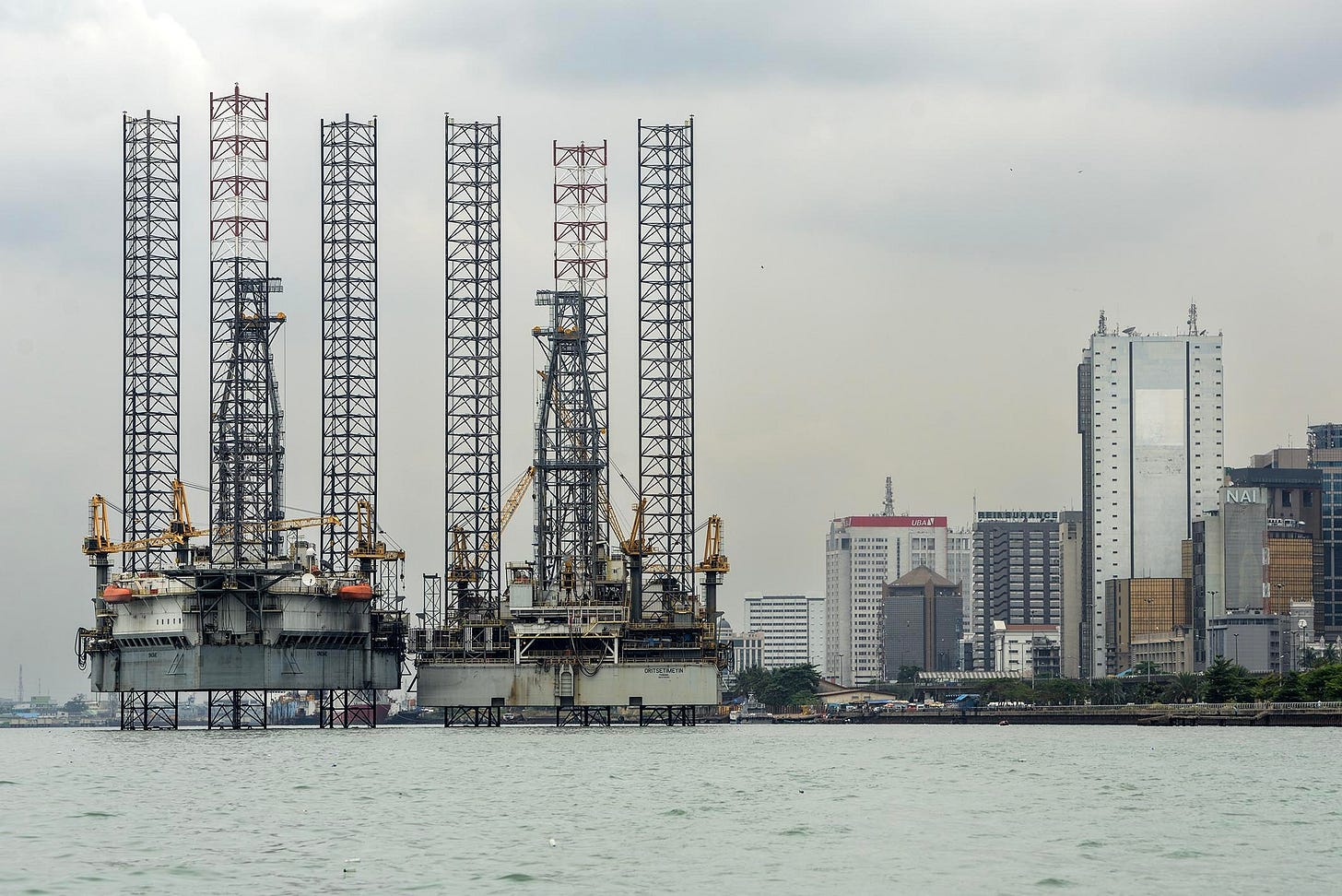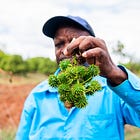Done dirty: Nigerians pay a premium for super dodgy fuel
To dodge sanctions, oil companies blend Russian oil between ships – offshore, out of sight. This can lead to dirty fuel. The kind thought ‘good enough for Africa’.
Marian Ansah

When Russia invaded Ukraine, Western sanctions targeted Russian exports, like refined oil. But in the eight months following the invasion, an oil tanker loitering just outside Maltese waters sold nearly two million barrels of Russian oil to Nigerian importers. Blended with products from elsewhere, it was then sold as oil from Malta. It also sold at prices 24% higher than unblended Russian oil.
Data from Kpler, a platform that tracks oil shipments, shows that the Huihai Atlantic arrived in the waters off the Maltese coast in January 2023. The following month, it started receiving oil and naphtha via ship-to-ship transfers, a controversial practice often associated with illicit trade. Tankers from Russia transferred 2.1-million barrels to the Huihai Atlantic, and ships from Bulgaria, India, Italy, Romania, Spain, and Türkiye gave it about 2.7-million barrels.
The blended fuels were then sold as originating from Malta, usually to Nigeria, with a small amount sold to the Democratic Republic of Congo.
Nigerian buyers – including Oanda, the Nigerian National Petroleum Company, Rano Oil, Rainoil, and Matrix – bought at least 3.9-million barrels of fuel from the Huihai Atlantic.
At the time, the average price for Malta fuel was $131 per barrel. Had they openly bought the Russian products, they would have paid about $100 per barrel, the cap that sanctions set it at, and the price paid for imports direct from Russia to Nigeria in 2023.
None of the companies responded to The Continent’s questions. But the scheme under which they bought the oil was wider even than those named above. In early 2023, ship-to-ship transfers increased dramatically as international oil marketers tried to skirt the sanctions that sought to cap the prices at which they could sell Russian oil.
A June 2023 report by Windward, a maritime intelligence company, said that ship-to-ship transfers rose by 50% in Malta and 220% in the Greek port of Kalamata. Both Malta and Greece resisted European Union sanctions before they took effect in February 2023.
In the waters outside Lomé and Lagos, 26 ship-to-ship transfers happened in the first half of 2023, compared to just three between the same period in 2022.
The EU reacted with a package of sanctions that banned access to European ports for any vessels suspected of busting sanctions by engaging in ship-to-ship transfer of Russian oil.
Dirty fuels that kill lungs
Offshore oil blending is also controversial for another reason: it can produce low-quality, inefficient and extra-polluting blends: dirty fuel.
Nigeria is already struggling with the quality of fuel. In March, it limited allowable sulphur content to 200 parts per million (ppm). This is still higher than the 50 ppm recommended by international standards. But when reporters analysed fuel samples from Nigerian petrol stations in September, one was found to have sulphur content of 800 ppm.
This proliferation of dirty fuels is especially concerning in urban Nigeria, where diesel generators are ubiquitous.
“In Lagos, houses are built so close together that the generator exhaust fumes often blow directly into neighbouring homes. Combined with car emissions, the air quality can be terrible,” said Otonye Iworima, who advocates for cleaner air in Nigeria’s commercial hub.
Iworima used to be an elite athlete but shifted her focus because she is convinced poor air quality is killing her family. She believes it contributed to her sister’s death from a pulmonary embolism.
“She had asthma, just like my brother,” she said. “Half of my family suffers from asthma, and the other half has respiratory allergies. For me, air quality has always been deeply personal.”
Her story is far from unique.






Omg. Argh. Thank you for sharing this.